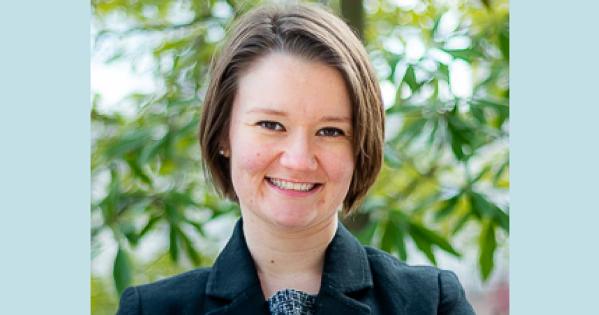SPA Professor and Student Examine County Cooperation on Immigration Policy

As the issues surrounding immigration have gained in intensity over the past decade, the federal government has sought cooperation with local law enforcement agencies to help enforce its immigration efforts. In response, SPA Professor Jocelyn Johnston has published a journal-solicited paper in State and Local Government Review, for a special symposium entitled “Filling a Vacuum: Subnational Governance amidst National Government Inaction.”
The coauthored article represents a project examining local government discretion when it comes to cooperating with Immigration and Customs Enforcement (ICE), on which Johnston partnered with Brittany Blizzard (SPA/PhD ’22). “State Policy Control and Local Deviation: The Case of Immigration” was published in March.
“This paper from start to finish happened really quickly. It was a unique opportunity,” Blizzard said. “Because of the pandemic, the journal was inspired to look at areas where national governance was lacking. And immigration policy is absolutely one of those places.”
Blizzard and Johnston focused on Georgia and Texas, states with both potent state anti-immigrant laws and counties that oppose them. For their mixed-method analysis, using interviews and U.S. Census and ICE data, the researchers discovered that special interests—those related to immigrant-dependent industries important to county economies—have significant influence over county decisions to minimize cooperation with ICE.
Local action is most likely to deviate from state policy in areas with growing Hispanic populations and where there are industries that rely heavily on immigrant labor. In areas where residents vote at higher rates for Republican candidates, counties were signficantly less likely to deviate from state anti-immigration policies.
Several counties in Georgia and Texas with large portions of the states’ populations use their autonomy to resist collaborating with ICE. They work closely with nonprofit organizations to support immigrants with a variety of strategies that focus on persuasion of local law enforcement agencies and buttressing legal protections for immigrants.
Based on the results, Blizzard said she hopes that companies that are dependent on immigrant labor will take a stand to protect their employees.
“As immigration research proves time and time again, immigrants are not harmful to our economy. If anything, they are helpful,” Blizzard says. “They are upholding these industries in states that seem bent on making it harder for immigrants to live in, but they are there working nonetheless.”
Johnston said working with doctoral students like Blizzard is a “win-win”: these burgeoning academics are full partners in research, become valued colleagues, and gain valuable skills.
SPA doctoral students have high placement rates after graduation, in part, because of the opportunities they have to publish.
“It’s great to get to know the students and watch them develop,” Johnston said.
Blizzard said she is pleased to have a published paper before she hits the job market. Information from this article will be used for a chapter in her dissertation, which examines the potential positive effects of sanctuary policies.
